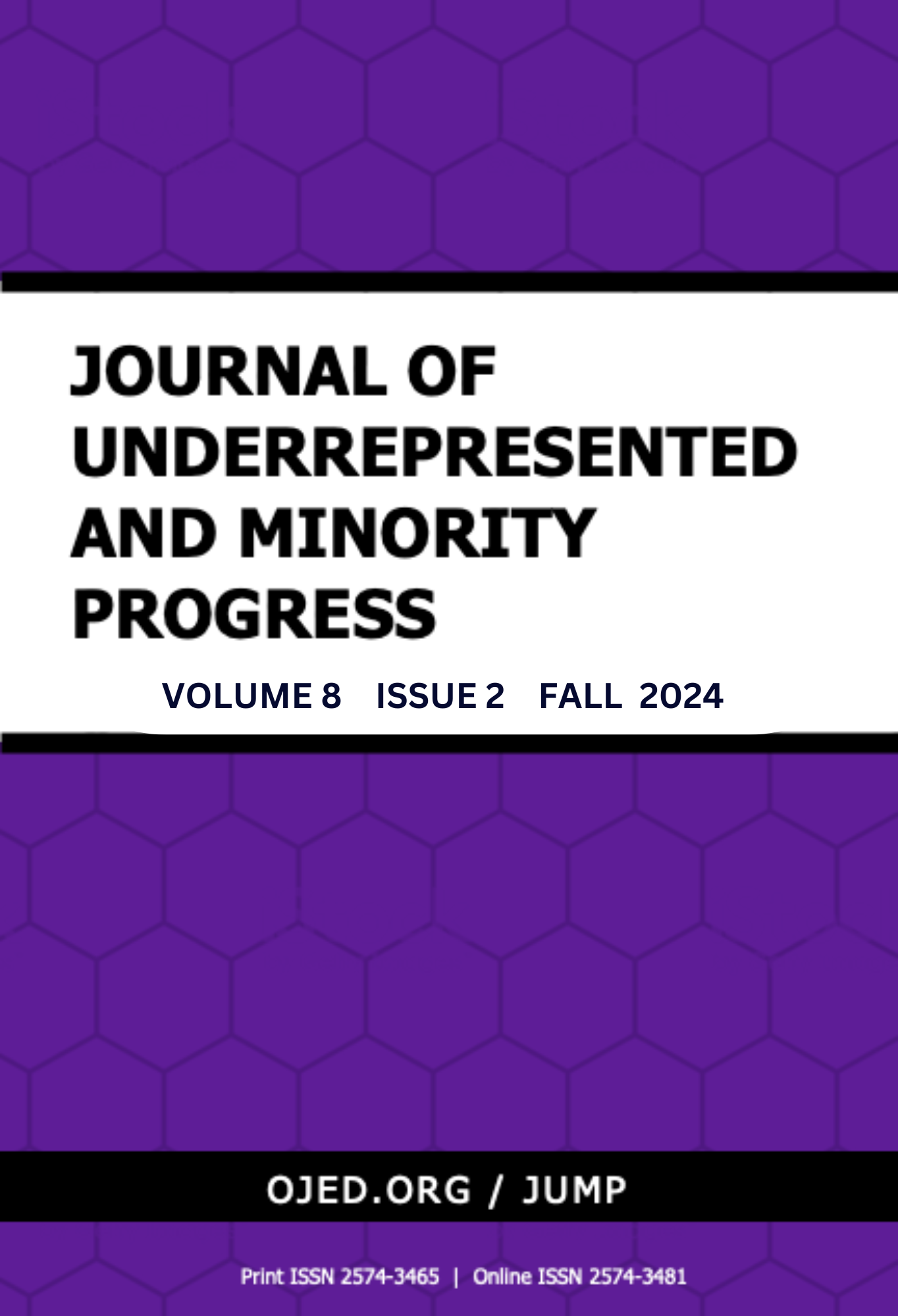Exploring the Experiences of Indigenous Peoples Mandatory Representatives in the Barangay Level, Philippines
DOI:
https://doi.org/10.32674/jump.v8i1.6345Keywords:
Indigenous Peoples, Descriptive Representationn, Substantive RepresentationAbstract
This phenomenological study aims to explore the experiences of six Indigenous Peoples’ Mandatory Representatives in Baguio City, Philippines. Using a semi-structured interview, this study found that the participants fulfil descriptive representation through the mirroring of their constituents’ ethnolinguistic identities and political practices. However, the participants are only able to attain a limited form of substantive representation by aligning their proposed ordinances with existing local and national legislation, and their insertion of Indigenous Peoples’ interests in the local legislative agenda. Institutional difficulties and lack of community engagement hinder the participants’ performance of their representation tasks. Overall, this paper discusses the difficulties of enacting responsive ordinances despite the presence of Indigenous Peoples’ Mandatory Representatives.
References
Arquiza, Y. (Ed.) (2005). A journey of hope: Implementing the indigenous peoples’ rights act of the Philippines. Vol. 1. International Labor Organization.
Bagamaspad, A. & Pawid, Z. (1985). The People’s History of Benguet. Benguet Province.
Balangcod, T. & Balangcod, A. (2011). Ethnomedical knowledge of plants and healthcare practices among the Kalanguya tribe in Tinoc, Ifugao, Luzon, Philippines. Indian Journal of Traditional Knowledge. 10(2). 227-238.
Carino, J. (2005). Indigenous Peoples’ Right to Free, Prior, Informed Consent: Reflections on Concepts and Practice. Arizona Journal of International and Comparative Law. 22(1). 19-39.
Castillo, R. & Alvarez-Castillo, F. (2009). The law is not enough: Protecting Indigenous peoples’ rights against mining interests in the Philippines. https://api.semanticscholar.org/
Creswell, J. W. (2014). Research Design: Qualitative, Quantitative, and Mixed Methods Approaches. SAGE Publications.
Daytec-Yangot, C. (2012). FPIC: A shield or threat to Indigenous Peoples’ Rights? A Summary. UNREDD Programme. www.un-redd.org.
De Leon, AM.,Kalaw, SP., Dulay, RM., Undan, JR., Alfonso, DO., Undan, JQ., & Reyes, RG. (2016). Ethnomycological survey of the Kalanguya indigenous community in Caranglan, Nueva Ecija, Philippines. Current Research in Environmental & Applied Mycology 6 (2): 61–66
Erasga, D. (2008). Ancestral Domain Claim: The Case of the Indigenous People in Muslim Mindanao (ARMM). Asia Pacific Social Science Review. 8(1).
Estoque, R. & Murayama, Y. (2013). Landscape pattern and ecosystem service value changes: Implications for environmental sustainability planning for the rapidly urbanizing summer capital of the Philippines. Landscape and Urban Planning. 116:60–72
Fong, J. (2017). Ibaloys “Reclaiming” Baguio: The role of the intellectuals. Plaridel. 14(2). 49- 73.
Guinsiman, L. (2016). Establishing Standardized and Harmonized Kalanguya Orthography Towards Effective Writing: A Contribution in Mtb-mle Curriculum. NVSU- Research Journal. 3(1). 51-71.
Habbiling, J. (February 27, 2022). STL for Baguio studes in place. Baguio Midland Courier.
Hoffay, M. & Rivas, S. (2016). The indigenous in Latin America: 45 million with little voice. latinamericagoesglobal.org/2016/08/indigenouslatinamerica45millionlittlevoice/
Ibabao, D., Baliao, ME. & Lizada, J., (2012). A Review of Free, Prior, Informed Consent Implementation: The Case of a Large Dam Project in Iloilo, Philippines. Philippine Journal of Social Sciences and Humanities. 18(2). 49-63.
Jayma-Porquis, J. (2017). Indigenous Peoples Engagement to Mainstream Local Political: A Southern Philippines Narrative. Jurnal Ilmiah Administrasi Pemerintahan Daerah. IX (2).
Manuel, E. (2004). The Free and Prior Informed Consent Paradox: Recreating an Existing Tool for Empowerment. Philippine Natural Resources Law Journal. 12(1). 3-13.
Magno, C. & Gatmaytan, D. (2013). ‘Free Prior and Informed Consent in the Philippines: Regulations and Realities’. Oxfam America Briefing Paper.
Murphy, M. (2008). Representing Indigenous Self-Determination. University of Toronto Law Journal. 58(2). 185-216.
Morris, S. (2021). Mechanisms for Indigenous Representation, Participation and Consultation in Constitutional Systems. International Examples to Inspire Chile. International Institute for Democracy and Electoral Assistance.
National Commission on Indigenous Peoples. (2018). Administrative Order No. 3, Series of 2018, Revised National Guidelines for Mandatory Representation of Indigenous Peoples in Local Legislative Councils and Policy Making Bodies. NCIP CAR. http://ncipcar.ph/images/pdfs/ncip-ao-no-3-s-2018-ipmr.pdf
National Commission on Indigenous Peoples. (July 18, 2023). Press Release: NCIP conducts IPMR Summit. https://ncip.gov.ph/news/press-release-ncip-conducts-an- ipmr-summit/
Open Government Partnership. (2022). Indigenous Representation in Local Legislative Councils (PH0065). Open Government Partnership Organization.
Peñalba, M. (2011). The Indigenous Peoples’ Right to Self-Governance and Empowerment. Journal of Philippine Culture and Society, 3(1-2), 191-215.
Phillips, A. (1998). The politics of presence. London Guildhall University Press.
Philippine Statistics Authority (July 4, 2023). Ethnicity in the Philippines (2020 Census of Population and Housing). https://psa.gov.ph/content/ethnicity-philippines-2020-census- population-and-housing
Prill-Brett, J. (1987). A Survey of Cordillera Indigenous Political Institutions. Cordillera Studies Center. Working Paper.
Prill-Brett, J. (2007). Contested Domains: The Indigenous Peoples Rights Act (IPRA) and Legal Pluralism in the Philippines. Journal of Legal Pluralism and Unofficial Law 39 (55). 11- 36. https://doi.org/10.1080/07329113.2007.10756606
Protsyk, O. (2010). A Global Overview: The representation of minorities and indigenous peoples in parliament. Interparliamentary Union and UNDP.
Republic Act 8371 (October 29, 1997). An act to recognize, protect and promote the rights of indigenous cultural communities/ indigenous peoples, creating a national commission on indigenous peoples, establishing implementing mechanisms, appropriating funds therefor and for other purposes 1997. https://www.officialgazette.gov.ph/1997/10/29/republic-act- no-8371/
Sidchogan-Batani, R. (2003). Implementation of the Indigenous Peoples Rights Act (IPRA) in the Philippines: Challenges and Opportunities. Paper presented in the Expert Seminar on Treaties, Agreements and Other Arrangements between States and Indigenous Peoples, Geneva, December 15-17, 2023.
See, D. (March 1, 2022). Institutionalization of the School of Living Tradition okayed. Herald Express. https://baguioheraldexpressonline.com/institutionalization-of-school-of-living- tradition-okayed-2/
Sy, & Martinez, (2022). Recommendations for the Indigenous People’s Rights Act (IPRA) of 1997: Recentering Indigenous Communities and Organizations. UP CIDS Policy Brief.
Templeman, K. (2018). When Do Electoral Quotas Advance Indigenous Representation? Evidence from the Taiwanese Legislature. Ethnopolitics. 17(5). 461-468.
United Nations Development Program, (February 2010). Fast Facts: Indigenous Peoples in the Philippines. https://www.undp.org/sites/g/files/zskgke326/files/migration/ph/fastFacts6--- Indigenous-Peoples-in-the-Philippines-rev-1.5.pdf
Uy-Jocson, E. (2018). Cultural Preservation and Inclusion of the Ifugao People. Journal of South East Asian Human Rights. 2(2). 421-447.
Villanueva, P. M., Ramos, V. B., Villaroman, L. V., & Villanueva, A. A. (2017). Indigenous Peoples Mandatory Representation in the Local Legislative Councils: Status, Challenges and Trajectories. Open Access Library Journal. 4(1).


